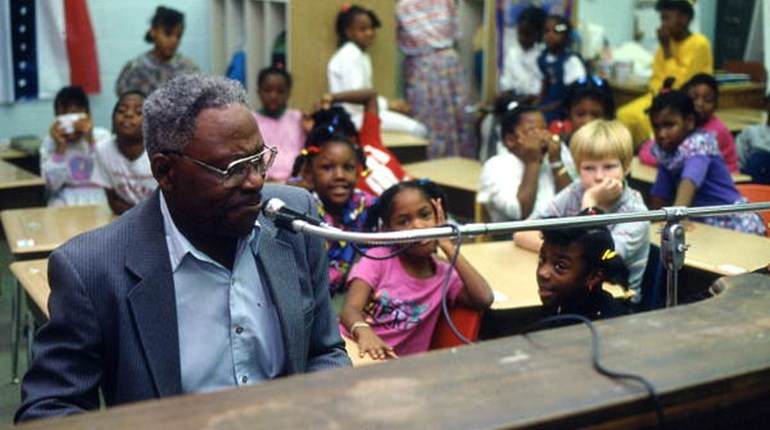Alexander McBride (1913-1999) was born in Jacksonville, Florida. He learned to play the piano from his mother. McBride never learned to read music, but played by ear. His mother encouraged McBride to play in church, which he did throughout his childhood years. The sounds of blues and boogie-woogie from local juke joints were tempting. McBride would sneak away from his family’s home to listen to more “worldly” music when possible. When he was barely a teenager, McBride began to play in local clubs.
After military service in the Army, McBride traveled throughout the southeast playing the piano for house parties and at private clubs. By 1940, he was using the stage name “Piano Slim” to play the cotton and fruit belts. He often played in Chicago because gigs were plentiful. McBride primarily played in African American clubs, but he occasionally performed in white establishments in the Deep South. He also worked as a disc jockey in Alaska.
McBride’s gifted piano style was a combination of jazz, rhythm and blues, and country. His music was rooted in the gospel and boogie-woogie traditions. He was an excellent resource for southern African American music history because of his first-hand experience in both the sacred and secular music worlds.
McBride performed at the Florida Folk Festival, gave concerts at the University of Florida in Gainesville, and participated as a demonstrator for the Duval County Folklife in Education Program for ten years. Whenever possible, he demonstrated traditional music in the Duval County Public Schools.
Listen to the Florida Memory podcast about the life and music of Alexander McBride.
